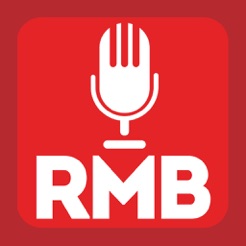Research Paper Mistakes – How to Avoid These Three Common Research Paper Mistakes
Research papers are a fantastic way to communicate your research findings to a wide or specific audience. They can be used to find new applications for your findings or discover new uses for data, and so on. Although it is not necessary to be a specialist in the fields of study however, it is preferential to publish research that is backed by at least one prior published research paper. It is also important to note that many publishers require you cite the work of others in addition to a copyright statement.
One of the most common problems that research كتابة ايميل بالانجليزي قصير papers face is the assignment of a reviewer or editor-in-chief. This is especially true when there are many important revelations in the document. Reviewers will often try to “greenlight” the manuscript without actually going through it. Let’s say that you’ve written an essay on the connection between obesity and back pain. Your next assignment will be to obtain a copy of an earlier peer-reviewed journal article written by the same author on the same topic, in order to include an explicit quote from the source in your essay.
It is permissible to request an author’s quote on their previous works as long as they are in agreement and the permission is obtained separate from any other written work. While there are many advantages to getting quotes regarding previous research papers there are also certain pitfalls. For instance, the quotes should be appropriate to the topic of your research paper. If you’re writing about obesity and low back pain it’s not an ideal idea to include a quote from someone who, for example, discussed the relationship between low back pain and depression.
Another common error in research papers is the way it is encountered, and this is the tendency to “fill in the blanks”. Students often fall prey to this temptation when writing their introduction section. It’s tempting to refer to just a few sentences that outline the primary theme of the research paper. It is essential that your summary paragraph provides enough information for the reader to understand the argument that you have made in your essay.
Plagiarism is the third major mistake in research papers. Plagiarism refers to copying work from another person. The only way this could occur in research papers is when you make notes on the work of another instead of searching for the source yourself. When you are completing your outline for your assignment Make sure you take photocopies of all documents containing research statements. If possible, make photocopies of three sets data.
Poor formatting is another frequent error in research papers. Poor formatting is a typical error that researchers make in their research papers. Many writers struggle to create an effective outline, write a conclusion, and finish their papers in a timely manner. For the best results, you should begin and conclude your essay with a strong opening and conclusion. Use numbers and bullets to indicate the various sections of your essay. Each paragraph should begin by a heading that highlights your main point.
Students who spend too much time analyzing their research papers are another common mistake. Students spend too much time analysing their arguments, instead of spending enough time developing them. This is fine; however, it doesn’t mean that your assignment will be conclusive. You might find yourself spending too much time writing about your research issues, that you don’t think to address the primary topic of your paper. This is an easy mistake to avoid. Students who believe they are in a hurry when writing essays tend to not address the significance of the assignment.
The three elements listed above are not part of an academic research paper, so it is crucial to avoid common mistakes. The introduction is the most important section, since it is where you will present your main argument in your research paper. The body of your essay is then a further argument to back up your main argument and includes additional research papers. The conclusion summarizes your findings and offers suggestions for future research.





